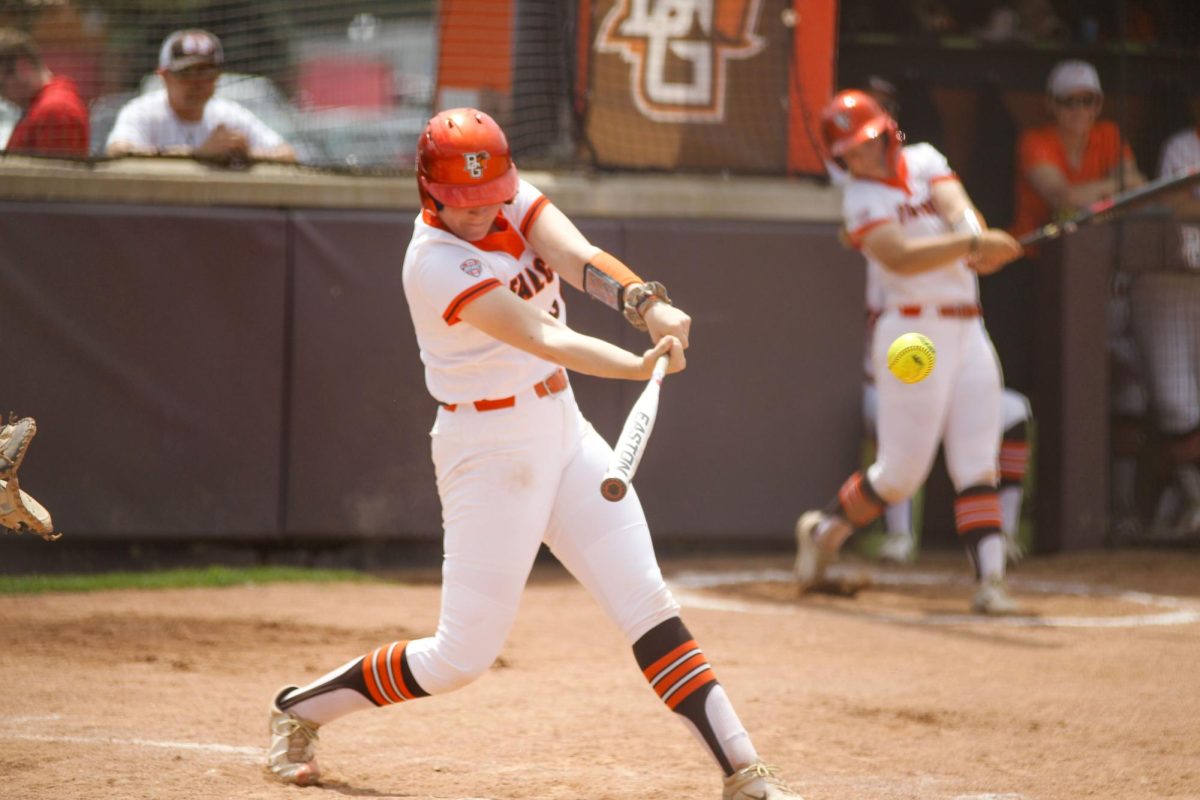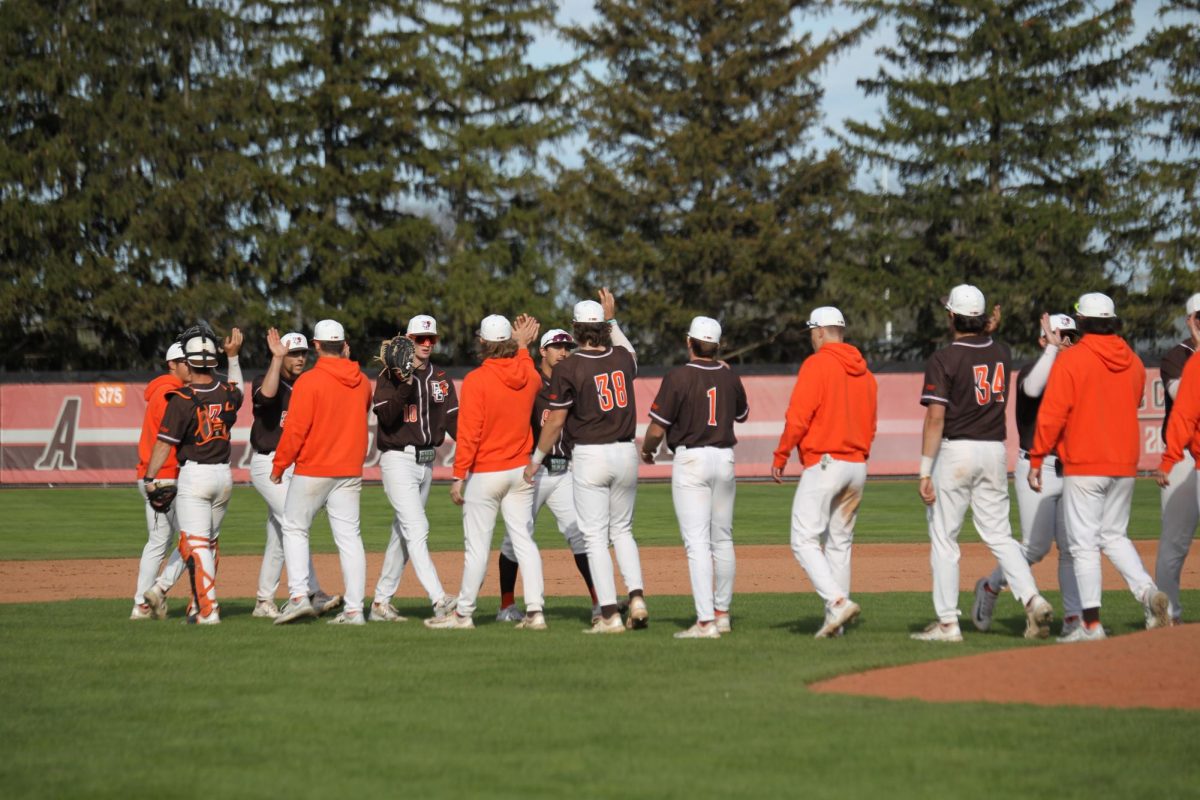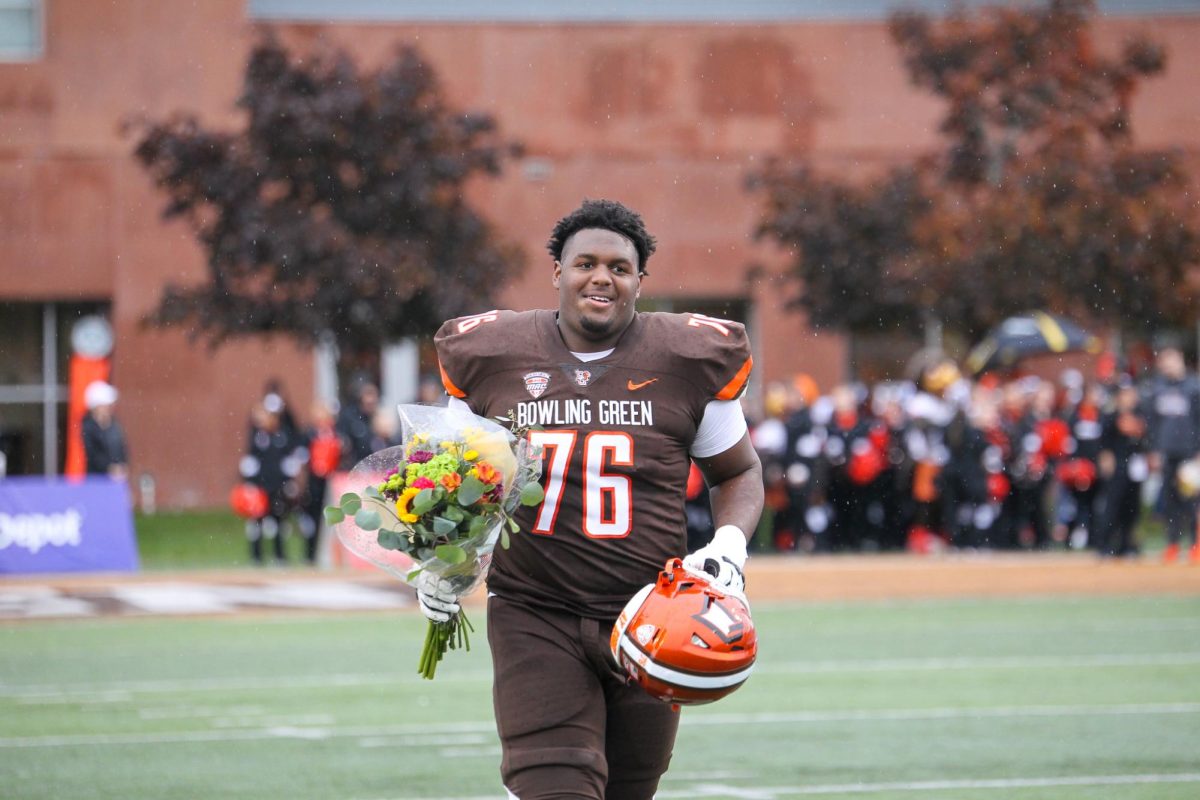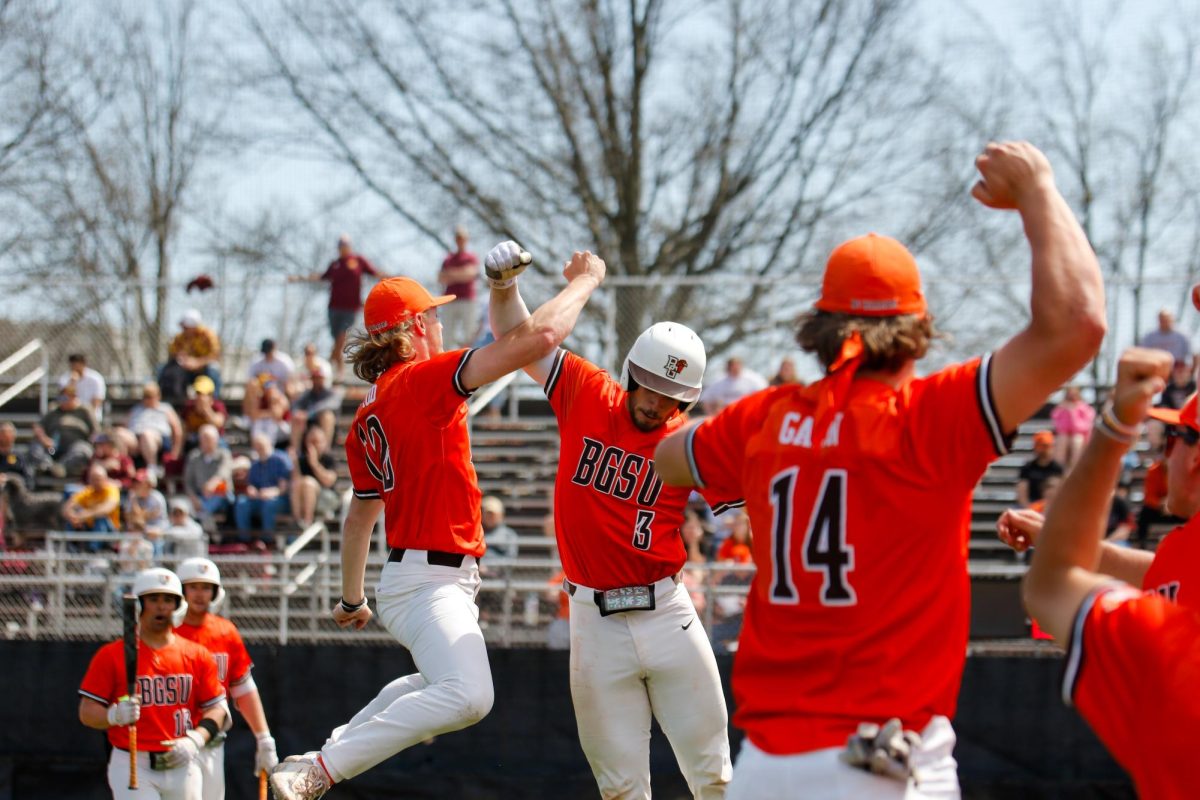Cynthia Mahaffey looks forward to her marriage in Canada. She has a folder stuffed with documentation of her anticipation.
“[Partner Amy Beltano] and I looked into Massachusetts, but their Governor, Mitt Romney, has stopped court clerks from marrying people who are not Massachusetts residents,” said the University writing instructor.
So, it’s northward, where provinces, instead of clamping down on same-sex partners, are embracing them.
“They’ve been doing it province by province,” said Mahaffy. “Alberta just signed onto the idea. Of course it won’t mean anything legally when we get back.”
Which is where Mahaffey and Beltano begin to run into difficulty.
Legally unrecognized status leads Mahaffey and many of the more than 600,000 other same-sex partners in the United States to take unusual contractual steps in their attempts at security.
“In this community, we do a lot of legal documents to make sure our wishes are followed,” Mahaffey said. “Stuff other people might not think about.
“Both of the Wood County and Toledo hospitals that I’ve visited have been okay with letting me in,” Mahaffey said. “Do Not Resuscitate orders are an issue, though. If you put it in a will, they’ll generally follow your wishes for who gets to decide, but there have been situations where doctors have reverted to the wishes of the biological family.”
Toledo professor Rane Arroyo says the documents can be invaluable. Arroyo’s partner of 23 years, Glenn Sheldon, had a stroke scare three and a half years ago, and the then-undocumented Arroyo was allowed admittance only after claiming to be Sheldon’s brother.
“They were willing to ignore the theatrics, but only after I had to lie about myself,” Arroyo stated. “Since then, we went to a lawyer so that this will never happen again.”
Arroyo and Sheldon gave each other emergency power of attorney.
“We finally invested the $800-plus dollars required — in Ohio — to have all the ‘official legal documents’ that the state requires,” Sheldon stated. “However, to carry these documents with you everywhere, in the event of an emergency, is cumbersome.”
Furthermore, Mahaffey says, documentation is only as strong as the law allows.
“In the case of parenthood, only the physical mother is considered the parent in Ohio,” Mahaffey said. “The nonbiological mother loses rights if the biological mother dies. It puts children and families in jeopardy.”
Mahaffey and Beltano are currently more occupied with other matters, however — staying insured and getting a home.
“She actually has domestic partner benefits through U.S. Bank in Cincinnati,” said Mahaffey. “If she came up here to join me, she would lose that.”
Continuing hope
Christina Guenther is working to change that. Guenther, the chair of the Faculty Senate’s ad hoc committee on domestic partner benefits, says the issue is still being debated by University faculty.
“We researched the issue — looked at other universities and what they were doing. At this point it will be up to the faculty [welfare] committee and their discussion,” Guenther said.
Guenther said other universities have put such plans in place “as recently as October,” and that the benefits question, however it is answered, will affect the University as a whole, not just a minority.
“If we lose our top recruits because of lack of domestic partner benefits, if we lose 13 or 14 people per year, what does that mean to all of us down the road?”
If UT is any model, however, there will be ample resistance to the idea.
That school had virtually sealed group coverage for domestic partners, said Carol Bresnahan, who had a key role in the negotiations.
“I said ‘It’s gonna happen finally after a number of years,'” Bresnahan said. “I put it out of my mind.”
Two months later, issue 1 passed. Bresnahan did not think it would have a significant effect on her work.
“I said ‘No, I don’t think so’ at the time,” Bresnahan said. She now realizes that she was wrong.
Shortly after the passage of the amendment, the Board of Trustees revoked the coverage plan, citing a desire to avoid lawsuits.
Bowling Green resident Jacque Nathan, who has been in a partnership for 12 years, says the UT cut may have been rash.
“Some of the other universities have decided not to [cut coverage],” Nathan said. “Oberlin has had [coverage] for years.
Bresnahan takes the same stance.
“It’s an excuse in my opinion,” Bresnahan said. “Cleveland State, OSU, Miami none of them has been sued. Personally, you do what’s right.”
A question of definitions
What’s considered right varies from person to person, however.
“It is definitely an issue that we talk about,” says Pastor Kevin Crawford of Bowling Green’s Brookside Church. “I’ve talked about ‘What is homosexuality, what does it mean to us.’ I really see marriage as a spiritual issue.”
The issue is important to Pastor Brian Snyder of the First Baptist Church as well.
“I’m pretty strong on that God created marriage between a man and a woman,” Crawford said. “If it’s done any other way, God tends to put a judgement on it or a curse on it.”
Snyder is nearly as hesitant about civil unions.
“It’s kind of a broad term. I wouldn’t want to dilute marriage, so I just say ‘If you’re going to get married, do it the right way.'”
That angers Bresnahan, who says that without nonmarriage unions, options are few.
“None of this is about asking for privilege,” Bresnahan said. “It’s about asking for equality. This is not an abstract issue. It’s real people; real dollars.”
Crawford says that equality is admirable, but hard to come by.
“I think that everybody should have equal rights. But if so, why can’t a family that brings their grandmother into their home have that?
“If we’re going to do that umbrella, we have some questions to ask.”
Mahaffey bristles a bit — then partially agrees.
“It seems like a specious argument to my mind because we don’t make up that much of the population,” Mahaffey said. “To me it’s a little bit like apples and oranges. We have Medicare and Medicaid, which help ease that burden.”
“But yes, in a better civilized society, we should treat our older society members with that respect,” she said. “And it’s funny, it really only comes up when people mention gay marriage.”


















